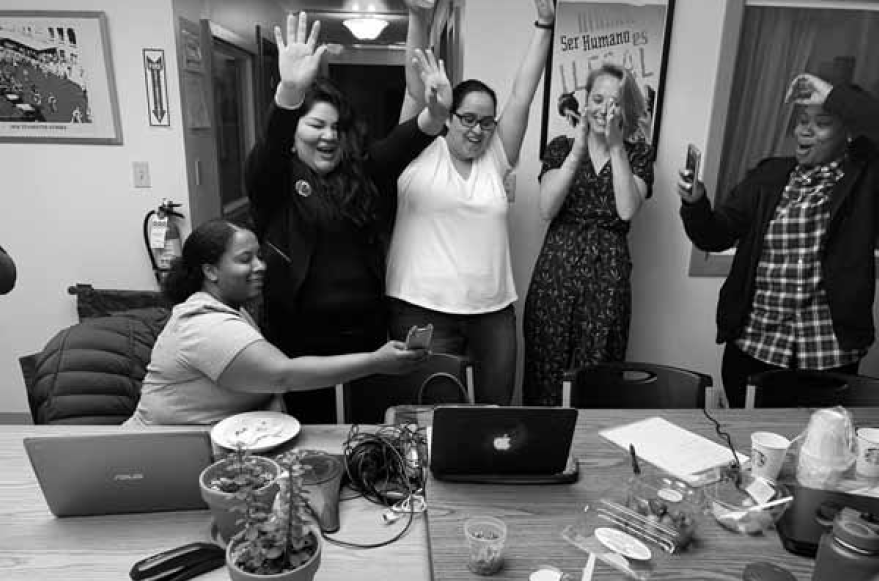Whether a renter or a homeowner, we can all celebrate the increased tenant protections Washington residents gained this legislative session. Now, the people who have been most affected by weak tenant protections—people of color, women, seniors, people with disabilities, LGBTQ, veterans, low-wage workers and families—will have additional protections to remain housed.
Recently signed into law, SB 5600 provides tenants 14 days’ notice, instead of 3, when served an eviction notice. This could mean one more paycheck or the necessary time to access community support services to catch up on rent and remain housed. No one should lose their housing because they experienced an emergency or fell behind on bills one month.
Thankfully, judges can now examine the full circumstances of the late or non-payment of rent and institute payment plans with tenants instead of completing an eviction. Another bill, HB 1440 requires landlords to give 60 days’ notice for rent increases, which is 30 days more time than previously, now allowing more time to make budget adjustments. The dozens of people, community organizations, unions, faith networks, and service providers that testified and advocated for this legislation know that a stable home means a stable community.
Despite these incredible wins, the work to increase tenant protections continues across the state. Some legislators chose to protect the financial interests of the few over the fundamental needs of the many. Month-to-month tenants can still be sent a 20-day notice to vacate for any reason. Because landlords don’t have to provide a legitimate business reason, tenants are not protected against discrimination or retaliation.

Tenants deserve to be given a cause for eviction because housing is an essential need we all share. Further, good cause eviction policy will only affect landlords who evict tenants without a cause. If landlords have cause for eviction—non-payment of rent, broken lease, damages, illegal activity, etc.—they still have the power to evict tenants. Stable Homes Federal Way is working to advance these “good cause” tenant protections by collecting over 7,000 signatures in Federal Way by June 6. Over the past several years, community members have passed strong renter protections on the local and state levels.
Yet, even in the face of the region’s worse housing crisis, there is incredible resistance from lawmakers to support protections like good-cause eviction that keep families and communities stably housed,” said Xochitl Maykovich, campaign manager for Stable Homes Federal Way. “Given that similar legislation did not pass the legislature even with such profound need for these protections, we felt obligated to take the fight to the ballot.”
The conversations had while collecting signatures made it clear that poor and working-class families, people of color, women and immigrants are routinely taken advantage of by slumlords; experiencing a high rate of no-cause evictions. Numerous people who are now homeless due to a no-cause eviction rejoiced when they learned they could help stop that from happening to somebody else. Federal Way city council members Martin Moore (R) and Jesse Johnson (D), teachers, union members, faith leaders and activists have been knocking on doors and collecting signatures in public spaces. Local Federal Way protections will be won because black, brown and white folks have united for stable homes just as we have for other landmark legislation at state and federal levels.
This year Washington state legislators passed critical legislation in the fight for tenant protections. What wasn’t won statewide can still be won at the local level and further signal to our legislators that Washington residents want common sense reforms that address our collective need for stable housing. Cities do not need to bear the burden of legislative inaction. Rather, cities like Federal Way, Tacoma, Olympia and Tumwater can take the necessary actions to implement additional tenant protections and support advancing them statewide in the next legislative session.
Sarah Stockholm is a community organizer and popular educator working with Washington Community Action Network at the intersections of race, class, community and legislation.
Be First to Comment